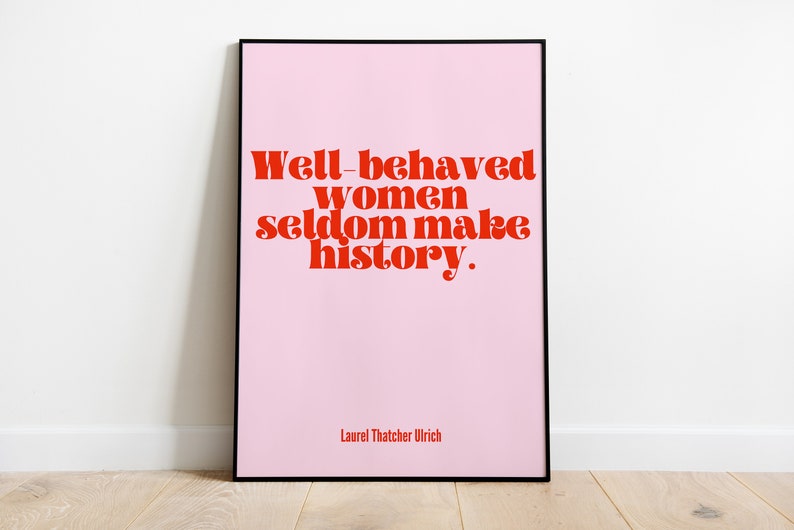

Ulrich used the phrase “well-behaved women” in a literal sense-meaning women behaving how it was considered proper and correct at the time-and that is how many other people have interpreted the phrase. To consider how other people have interpreted Ulrich’s statement, we need to look at the varying contexts and meanings of the main words and phrases in the statement. How did they do things such as laundry and cooking without all of the modern conveniences we rely on in the twenty-first century? (Historians have discovered the answers to those and related questions.)

I personally have always found it fascinating to read about the real lives and real actions of women and men going about their normal business at earlier periods in history. As time has passed, Ulrich and other historians have moved the discipline of history to a place where the ordinary lives of people (women and men) have found an important and useful place in the study of history overall.

In that context, the words had a mostly literal meaning. Her statement, “well-behaved women seldom make history,” was a commentary on how her academic discipline was not interested in the activities of “well-behaved women” because they were not considered worth studying. Ulrich also discusses her original intention of the meaning of the statement in comparison to how others have interpreted it.Īt the time (1970s) that Ulrich was writing her article, she writes in the book, the discipline of history was not very interested in the everyday ordinary lives of people-especially not interested in the ordinary lives of women. xiii) ended up on t-shirts, bumper stickers, posters, and in many digital incarnations. Ulrich uses the introductory portion of her book titled Well-Behaved Women Seldom Make History to explain how her statement made in an academic journal article (about “well-behaved women celebrated in Puritan funeral sermons,” p. Well-Behaved Women Seldom Make History: Quotes and Context for Women's History Month by Unknown User on T13:30:03-04:00 | 0 CommentsĪlthough this statement has been misattributed to Eleanor Roosevelt (and some other well-known women), it was actually made by academic and historian Laurel Thatcher Ulrich in her 1976 article “ Vertuous Women Found: New England Ministerial Literature, 1668-1735 ” published in the journal American Quarterly.


 0 kommentar(er)
0 kommentar(er)
